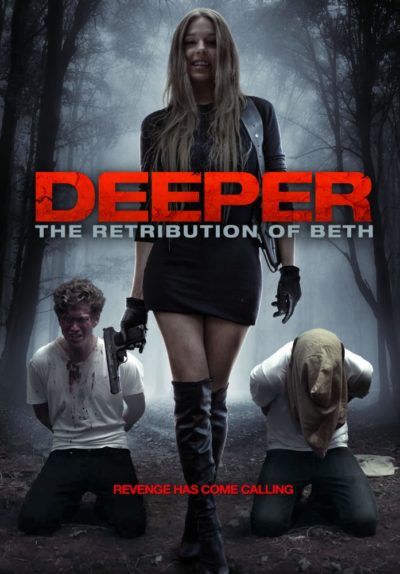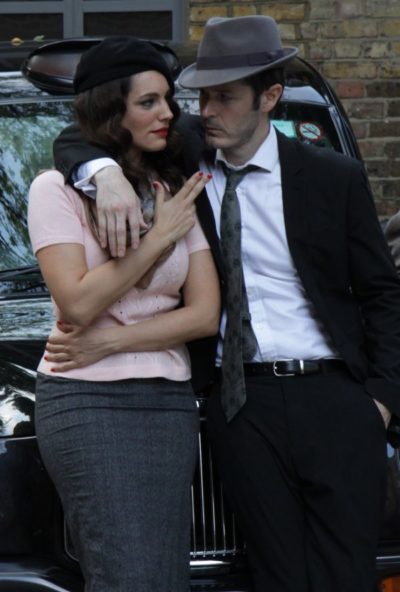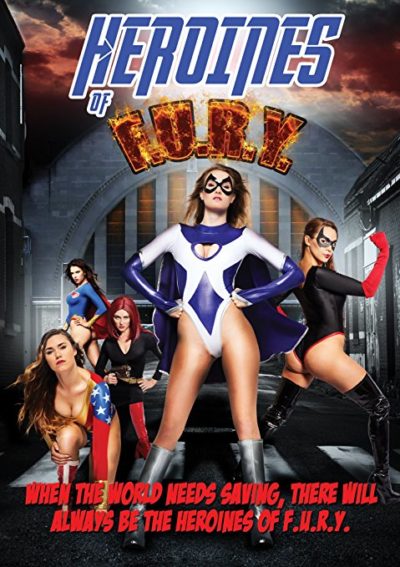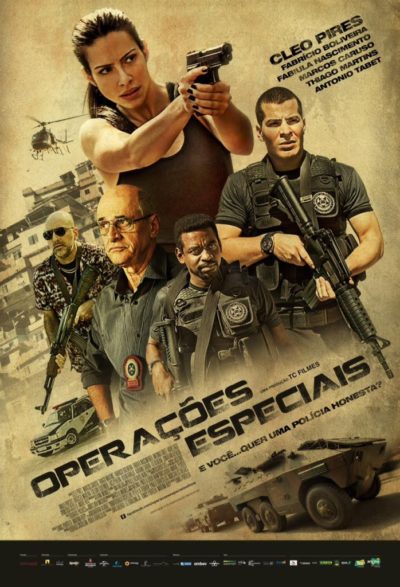 This self-published novel was recently donated by the author to the library where I work, a kindness that we appreciate. The author and I are both members of the Action Heroine Fans group here on Goodreads, and I was intrigued by his posts there about the book. Understanding (from experience!) the frustrations of waiting for reviews in today’s glutted book market, and being a fan of kick-butt female protagonists myself, I’d hoped to help him out with a good review, though he didn’t donate the book with any such expectation. As my rating indicates, my reaction wasn’t as positive as I’d hoped, so I would have refrained from writing a review at all; but Tom graciously indicated that he didn’t have a problem with a less than stellar review.
This self-published novel was recently donated by the author to the library where I work, a kindness that we appreciate. The author and I are both members of the Action Heroine Fans group here on Goodreads, and I was intrigued by his posts there about the book. Understanding (from experience!) the frustrations of waiting for reviews in today’s glutted book market, and being a fan of kick-butt female protagonists myself, I’d hoped to help him out with a good review, though he didn’t donate the book with any such expectation. As my rating indicates, my reaction wasn’t as positive as I’d hoped, so I would have refrained from writing a review at all; but Tom graciously indicated that he didn’t have a problem with a less than stellar review.
I’ll say at the outset that if you like to discover the plot of a novel (as opposed to the basic premise) for yourself as you read it, I would NOT advise reading the cover copy, which gives away a fair bit of the plot. Suffice it to say that our chronological setting is the year 3177. Chapter 2 begins –and Chapter 1 is just a one-page set-up; chapters here tend to be quite short, which helps the plot flow quickly– with our title character, a cook from Idaho in the Galactic Federation army (who’s recently been discovered to have extremely good natural marksmanship skills with a rifle) being acquitted by a court-martial of murder charges in the killing of her commanding officer, General Bloodworthy. The physical evidence overwhelmingly proved that General Bloodworthy had been raping her at the time. But the late General was the head of the Guardian Council, a semi-secret cabal of “right-wing” army officers who are suspected of self-serving and illegal behavior aimed at advancing and protecting their own members; and their power within the military makes them “virtually unstoppable.” Since it’s pretty plain that the Council will murder Belinda in retaliation for Bloodworthy’s death, Intelligence officer Lt. Col. Andrew Jackson Jones conceives the idea of spiriting her off-world for her own protection. (Why an Intelligence officer is serving on the Judge Advocate’s staff in the first place is only one of several unexplained problems here.) So these two characters take off for the stars, and the plot takes off along with them.
Holzel’s fictional universe has similarities to that of many other writers in the SF tradition: FTL space travel, a galaxy-spanning Federation, etc. But he puts his own original spin on this. Here, the Federation extends into several different galaxies, reachable by navigating through wormholes associated with black holes. There are, however, not very many habitable planets out there, and the few there are are populated by alien species that are all pretty much humanoid (this is explained by convergent Darwinian evolution adapting them all to similar conditions). Earth turned out to be the most technologically advanced of the lot (that, and the distances involved, might serve as a plausible explanation for the old chestnut about why, if there are alien civilizations out there, we’ve never picked up their radio waves, though Holzel doesn’t mention this). Jones and Belinda’s destination is the far-off, Jupiter-sized planet Magnus, a major source of a mineral that’s critical to FTL travel. The planet’s ultra-rapid rotation reduces its gravity around the equator to Earth-like levels, and its extremely strong magnetic field prevents electricity from being transmitted on the planet’s surface. As this discussion indicates, this novel is very much in the “hard” SF tradition. The effects of the planetary conditions on local technology are worked out in some detail, which will please fans who like that sort of thing. (Personally, I’m much more of a “soft” SF fan.)
I’m not scientifically knowledgeable enough to understand or evaluate much of Holzel’s above use of actual science, though I would say that it comes across as plausible. My interest in fiction, in this or any genre, is more in the human and literary elements of the stories. On that level, the plot is predictable, has serious logical gaps (beginning with the fact that the military even tolerates the Guardian Council to begin with, or that they would let a serving soldier simply go off planet with no orders), and IMO makes excessive use of coincidence. Some readers have found Belinda too passive; I’m not sure that criticism is entirely fair, since she grows here from a fairly naive and passive young woman to a greater maturity. But the characterizations are not well-developed, and I particularly don’t feel the romance as believable. (Jones treats Belinda with a degree of duplicity and manipulation that’s more or less treated here as just an example of how boys will be boys, but which I don’t think most women would or should accept.)
No serious Intelligence officer would confide his mission to total strangers the way Jones does twice here; and I seriously question whether it’s physically possible for one crucial plot point to have happened the way it did. The Galactic Federation’s policy of paternalistically controlling interstellar trade (to “protect” other species from the “bad” competition) and Exporting Democracy strikes me as a naive extension of the worst aspects of globalist American foreign policy extrapolated onto an inter-galactic scale, and the cavalier attitude of the characters towards mass destruction of innocent life with a tactical nuke was a really serious negative for me. There are also repeated editing issues, numerous plot points that are inadequately explained, and not much world building outside of the technological area. (A minor quibble is the unexplained variation in Belinda’s name, which seems to be random; I could understand “Bea” as a plausible nickname, but she’s also sometimes “Linda” rather than Belinda.)
On the positive side, I was interested enough in the story to finish it. There’s a certain amount of bad language (though I don’t recall any obscenity –there might be some I’ve forgotten) including religious profanity, but it’s probably within the bounds of realism for the milieu. Although there’s no explicit sex, there are sexual situations, and Belinda tends to be a frequent target of sexual harassment and rape attempts. However, this isn’t condoned, and it’s dealt with forcefully. I don’t think the “moral tendency” of the novel would be to encourage that sort of thing in any sense.
Author: Tom Holzel
Publisher: Self published, available through Amazon, both for Kindle and as a printed book.
A version of this review previously appeared on Goodreads.
 Investigative journalist Mark (Anderson) is not too happy about his latest investigative assignment: going on a ride-along with Steve (Francis), the sleazy owner of porn company “XBus”. He picks up girls on the street and supposedly, talks them into getting naked for his website, Girls Gone Wild-style. But Steve’s latest predatory mission doesn’t go as planned, after picking up the very lovely Beth (Sam) and her friend Sam (Gatien). For Beth pulls a gun, hijacks the limo, and drives the two men into the forests on the outskirts of town, clearly with savage vengeance on her mind for an incident in her – and Steve’s – past. Not quite the story Mark anticipated getting.
Investigative journalist Mark (Anderson) is not too happy about his latest investigative assignment: going on a ride-along with Steve (Francis), the sleazy owner of porn company “XBus”. He picks up girls on the street and supposedly, talks them into getting naked for his website, Girls Gone Wild-style. But Steve’s latest predatory mission doesn’t go as planned, after picking up the very lovely Beth (Sam) and her friend Sam (Gatien). For Beth pulls a gun, hijacks the limo, and drives the two men into the forests on the outskirts of town, clearly with savage vengeance on her mind for an incident in her – and Steve’s – past. Not quite the story Mark anticipated getting.




 Perhaps surprisingly, this is not the first attempt to cross over between the worlds of zombies and pro wrestling. There was also the imaginatively-named Pro Wrestlers vs Zombies, which included Roddy Piper, Kurt Angle and Matt Hardy. This is much lower-budget, Australian and almost certainly contains nobody of whom you’ll have heard. But what both movies share is that… they aren’t actually very good. And that’s a shame, because I’m pretty much the ideal target audience, being a fan of both wrestling and horror. That this one has a heroine, should be another factor in support of it, but it ends up falling apart and devolving into a second half that is little more than a procession of uninteresting set-pieces.
Perhaps surprisingly, this is not the first attempt to cross over between the worlds of zombies and pro wrestling. There was also the imaginatively-named Pro Wrestlers vs Zombies, which included Roddy Piper, Kurt Angle and Matt Hardy. This is much lower-budget, Australian and almost certainly contains nobody of whom you’ll have heard. But what both movies share is that… they aren’t actually very good. And that’s a shame, because I’m pretty much the ideal target audience, being a fan of both wrestling and horror. That this one has a heroine, should be another factor in support of it, but it ends up falling apart and devolving into a second half that is little more than a procession of uninteresting set-pieces. Kate’s (Brook) life has fallen apart: she has just been told the store she works at is closing because the owner is cashing in on a redevelopment offer; her boyfriend has dumped her; and Kate’s attempt at suicide by gas oven is doomed since she failed to pay the bill. What’s a girl to do? The answer is apparently, take inspiration from her heroine, Bonnie Parker. But rather than robbing banks, Kate teams up with her other disgruntled work colleagues, hatching a daring plan to copy the key to the store, seduce the safe combination out of the firm’s accountant, Mat (Williams) and plunder the ill-gotten gains.
Kate’s (Brook) life has fallen apart: she has just been told the store she works at is closing because the owner is cashing in on a redevelopment offer; her boyfriend has dumped her; and Kate’s attempt at suicide by gas oven is doomed since she failed to pay the bill. What’s a girl to do? The answer is apparently, take inspiration from her heroine, Bonnie Parker. But rather than robbing banks, Kate teams up with her other disgruntled work colleagues, hatching a daring plan to copy the key to the store, seduce the safe combination out of the firm’s accountant, Mat (Williams) and plunder the ill-gotten gains. Given the cover, you might reasonably have expected one of the above, but if you saw the rest coming, you’re a better judge of cinematic dreck than I am. It’s hard to work out exactly who would form an overlap between the various potential audience sections here. And even someone not averse to any of the categories (I’d probably qualify) might well be turned off by the poor production values and overall shoddy quality of this.
Given the cover, you might reasonably have expected one of the above, but if you saw the rest coming, you’re a better judge of cinematic dreck than I am. It’s hard to work out exactly who would form an overlap between the various potential audience sections here. And even someone not averse to any of the categories (I’d probably qualify) might well be turned off by the poor production values and overall shoddy quality of this. This self-published novel was recently donated by the author to the library where I work, a kindness that we appreciate. The author and I are both members of the Action Heroine Fans group here on Goodreads, and I was intrigued by his posts there about the book. Understanding (from experience!) the frustrations of waiting for reviews in today’s glutted book market, and being a fan of kick-butt female protagonists myself, I’d hoped to help him out with a good review, though he didn’t donate the book with any such expectation. As my rating indicates, my reaction wasn’t as positive as I’d hoped, so I would have refrained from writing a review at all; but Tom graciously indicated that he didn’t have a problem with a less than stellar review.
This self-published novel was recently donated by the author to the library where I work, a kindness that we appreciate. The author and I are both members of the Action Heroine Fans group here on Goodreads, and I was intrigued by his posts there about the book. Understanding (from experience!) the frustrations of waiting for reviews in today’s glutted book market, and being a fan of kick-butt female protagonists myself, I’d hoped to help him out with a good review, though he didn’t donate the book with any such expectation. As my rating indicates, my reaction wasn’t as positive as I’d hoped, so I would have refrained from writing a review at all; but Tom graciously indicated that he didn’t have a problem with a less than stellar review. Well, I’m guessing it’s the first, anyway. Low-budget SF isn’t something for which Netherlands cinema has lately been renowned. Indeed, even for – science-fiction in general, Boy 7 is about the only other recent feature-length example coming to mind. So getting an email giving me a heads-up about it, pointing me in the direction of this trailer was a bit of a surprise. Here’s the synopsis:
Well, I’m guessing it’s the first, anyway. Low-budget SF isn’t something for which Netherlands cinema has lately been renowned. Indeed, even for – science-fiction in general, Boy 7 is about the only other recent feature-length example coming to mind. So getting an email giving me a heads-up about it, pointing me in the direction of this trailer was a bit of a surprise. Here’s the synopsis: There are times when a film doesn’t deliver anything close to what the sleeve promises. This would be one of those times. However, in this case, while disappointed, I can’t claim it was an entire waste of my time. Or, at least, it wasn’t a waste of very
There are times when a film doesn’t deliver anything close to what the sleeve promises. This would be one of those times. However, in this case, while disappointed, I can’t claim it was an entire waste of my time. Or, at least, it wasn’t a waste of very  This production had a long, convoluted and quite interesting path to the screen. While Lazenby was always on board, the original plan was for him to be a Western bad guy, going up against Bruce Lee and Sonny Chiba. But Lee’s death – oddly, he was supposed to have had dinner with Lazenby that night – resulted in Chiba quitting, and Warner Bros then also backed out of their worldwide distribution deal. It was reworked as a much smaller film, at less than one-tenth the original budget (although at around $850,000, was still very expensive for the time, location and genre), with Lazenby now teaming up with Angela Mao.
This production had a long, convoluted and quite interesting path to the screen. While Lazenby was always on board, the original plan was for him to be a Western bad guy, going up against Bruce Lee and Sonny Chiba. But Lee’s death – oddly, he was supposed to have had dinner with Lazenby that night – resulted in Chiba quitting, and Warner Bros then also backed out of their worldwide distribution deal. It was reworked as a much smaller film, at less than one-tenth the original budget (although at around $850,000, was still very expensive for the time, location and genre), with Lazenby now teaming up with Angela Mao. This appears to have been filmed somewhere in South America around 1966, then “poorly translated and dubbed by Germans”. The truth? It’s a modern spoof, a loving re-creation of the sixties Eurospy thriller, featuring two gun-toting leggy lovelies, Bridget (supposedly “Jasmine Orosco”, but actually Wedeen) and Sophia (“Paola Apanapal”, Larsen), who are international fashion supermodels by day, and jet-setting bounty hunters and secret agents by night. They acquire a microchip, capable of storing a whole one kilobyte of data – more than all the computers of Interpol and the Pentagon combined! – which embroils them in an evil plot to unleash wholesale devastation on the world’s population. As you do.
This appears to have been filmed somewhere in South America around 1966, then “poorly translated and dubbed by Germans”. The truth? It’s a modern spoof, a loving re-creation of the sixties Eurospy thriller, featuring two gun-toting leggy lovelies, Bridget (supposedly “Jasmine Orosco”, but actually Wedeen) and Sophia (“Paola Apanapal”, Larsen), who are international fashion supermodels by day, and jet-setting bounty hunters and secret agents by night. They acquire a microchip, capable of storing a whole one kilobyte of data – more than all the computers of Interpol and the Pentagon combined! – which embroils them in an evil plot to unleash wholesale devastation on the world’s population. As you do. The Brazilian special police unit, known as BOPE (Batalhão de Operações Policiais Especiais) have a ferocious reputation for a hard-edged approach to its work. This is, likely, necessary for surviving the favelas (slums) of Rio in which they operate, going up against heavily-armed drug dealers. But with this also comes a “by any means necessary” approach, which has come in for criticism. They’ve been the topic of films before, most notably the incredible Elite Squad, which is an all-time classic of action cinema (and removed any chance of us attending the 2016 Olympics). It’s into this obviously macho environment, that rookie policewoman Francis (Pires) is dropped, and has to make her way.
The Brazilian special police unit, known as BOPE (Batalhão de Operações Policiais Especiais) have a ferocious reputation for a hard-edged approach to its work. This is, likely, necessary for surviving the favelas (slums) of Rio in which they operate, going up against heavily-armed drug dealers. But with this also comes a “by any means necessary” approach, which has come in for criticism. They’ve been the topic of films before, most notably the incredible Elite Squad, which is an all-time classic of action cinema (and removed any chance of us attending the 2016 Olympics). It’s into this obviously macho environment, that rookie policewoman Francis (Pires) is dropped, and has to make her way.